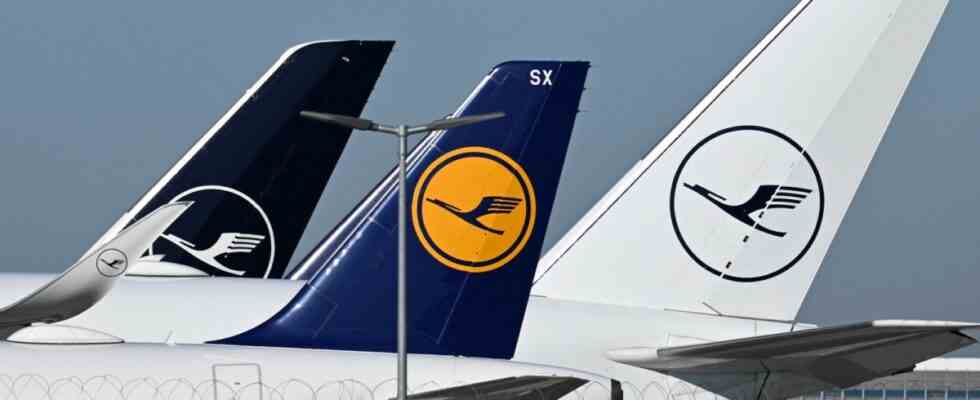Just a few days ago, the small English airline Flybe advertised on Twitter for new employees. Applications are currently being accepted for a number of vacancies, according to the social network. In the promotional photo, a pilot and a flight attendant smile in their uniforms while looking at a smartphone – classic role allocation, typical reflex.
Just a few days later, nothing was classic anymore, and the applications, if any, were superfluous: Last Saturday, Flybe ceased operations from now on, thousands of passengers were stranded, especially at British airports, and had to get new tickets buy, because there was nothing left to get from the airline. In the difficult economic situation and under great pressure, new investors were sought – but unfortunately the attempts failed, according to CEO Dave Pflug.
Flybe is just a small fish in the European aviation market, and the vast majority will not notice its disappearance – with the exception of employees, of course. But over the next few months, the airline industry will be concerned with the survival of a few far larger operators with well-known names: ITA Airways, the successor to Alitalia, TAP Portugal, SAS Scandinavian Airlines and Air Europa. The shaky candidates are usually medium-sized airlines with a classic business model, but which do not yet belong to any of the three large European groups Lufthansa, Air France-KLM and International Airlines Group (IAG). They’re not big enough to compete with the long-haul hubs, yet their ailing European operations are being attacked by low-cost carriers.
Of the four takeover candidates, ITA Airways is the closest to rescue despite horrendous losses. The Italian government announced last Friday that it supports exclusive negotiations with the Lufthansa Group. As is well known, Lufthansa initially only wants to acquire a stake of around 40 percent, but claims the entrepreneurial leadership for itself from the start. Lufthansa is hoping for growth in the large Italian market from the entry, for ITA, which only started at the end of 2021, it is about survival. Especially since the European Commission has ruled out further state aid for the airline.
The airlines in Scandinavia are having a particularly difficult time
TAP Portugal is also to be privatized again soon. The Portuguese state had kept the airline afloat during the corona pandemic with billions in grants. The Commission approved the aid on the condition that the company should be sold again soon. The constellation is explosive: Like Lufthansa, TAP is a member of the Star Alliance and operates a very dense route network to South America, especially to Brazil. Lufthansa, which has been weakening in the region for years, can hardly afford to lose the partner that at least offers many destinations in the region via Lisbon.
It is therefore considered certain that Lufthansa will also bid for TAP after the ITA transaction. Air France-KLM, on the other hand, could also do well with a strong South America specialist. Joining TAP would have the additional advantage that it would severely weaken its main rival Lufthansa. IAG, on the other hand, is unlikely to bid, because British Airways’ parent company is already well represented in the South American business with Iberia. In addition, the group will probably also buy into Spanish Air Europa in the next few weeks, which also specializes in the South Atlantic.
The situation has been particularly precarious for airlines in Scandinavia for years. Even before the pandemic, Norwegian had taken on too aggressive a growth course and only survived the crisis with drastic cuts. In the meantime, however, Norwegian has stabilized again. SAS Scandinavian Airlines, one of the pioneers in European aviation, voluntarily filed for bankruptcy in the United States in spring 2022 after a pilots’ strike had jeopardized the restructuring plan. Since then, SAS has been negotiating more favorable contracts with the creditors, especially with the aircraft leasing companies. The group only survives thanks to loans made available by investors. But the long-term prospects are bleak: none of the three major airline companies is really interested in restructuring a small market.
How serious the situation is there was acute on Monday. The small Norwegian low-cost airline Flyr, founded just a year and a half ago, warned of a “critical short-term liquidity situation”. Neither current shareholders nor new investors have so far provided the urgently needed fresh money. The Flyr share then lost 78 percent of its value in the morning. The flights planned for Monday should still take place as planned. But then another bankruptcy threatens.

